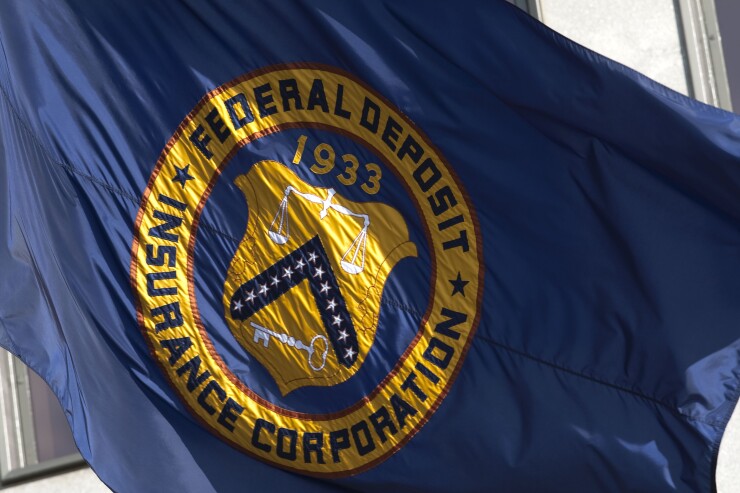
WASHINGTON — The Federal Deposit Insurance Corp. announced Tuesday it would begin marketing $33 billion of commercial real estate loans that once belonged to Signature Bank in New York, which failed during the banking crisis this spring.
The agency said it is setting up joint ventures to market about $15 billion of credits in the portfolio that are secured by rent-stabilized or rent-controlled units to fulfill its obligation to protect low-income housing availability.
"The FDIC will place the rent-stabilized or rent-controlled loans in one or more joint ventures (JV), with the FDIC retaining a majority equity interest in the JV," the agency said in a news release. "The JV operating agreement will provide certain requirements that facilitate the financial and physical preservation of these loans and underlying collateral."
FDIC said while it will take on a majority equity interest in the joint ventures, ultimately the winning bidders on the loans will be responsible for maintaining the loan portfolio on their terms.
"The winning bidders, or partners, will act as the managing member of the joint venture and will be responsible for the management, servicing and ultimate disposition of the loans," the FDIC said in a statement. "The JV partner will be required to manage the portfolio in accordance with the JV operating agreement and be subject to stringent monitoring."
The FDIC tapped Newmark & Company Real Estate to assist in advising on the sale.
The FDIC will be accepting bids for Signature Bank's former commercial real estate loans over the next three months. The agency indicated that it expects the sales to be finalized by the end of the year. The FDIC said its marketing strategy took into account input from relevant New York municipal and state agencies as well as community groups.
Signature Bank was shuttered by New York State regulators amid mounting withdrawal requests that decimated the bank's available funds. Signature's failure, along with that of Silicon Valley Bank, spurred banking regulators to invoke the systemic risk exception that would allow the FDIC to cover uninsured deposits.
Following Signature's failure, New York Community Bancorp's Flagstar Bank acquired most of Signature's deposits and some of its loans from the FDIC. The
Commercial real estate loans have been viewed with






